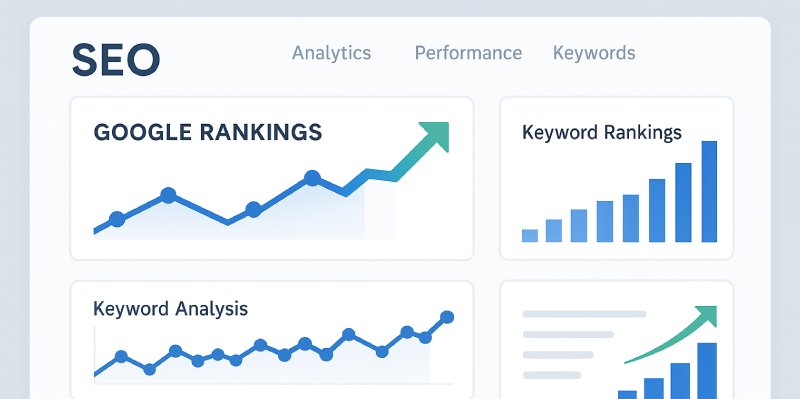Google’s algorithms are smarter than ever. In 2025, ranking on the first page requires more than just keywords. It’s about user experience, relevance, and performance. Here are 10 practical SEO tips to help you dominate the SERPs.
1. Optimize for Core Web Vitals
Focus on page load speed, interactivity (FID), and visual stability (CLS). Use tools like Google PageSpeed Insights and Lighthouse to monitor performance.
2. Target Long-Tail Keywords
Use tools like Ubersuggest, Ahrefs, or Google’s “People Also Ask” to find low-competition, intent-driven long-tail keywords for better conversion.
3. Publish Helpful, AI-Assisted Content
Combine your expertise with AI tools like ChatGPT to create high-quality, original content that solves real user problems. Keep content well-structured with H2s, lists, and FAQs.
4. Improve Mobile Experience
With mobile-first indexing, make sure your website is fully responsive, fast, and easy to navigate on all devices.
5. Use Schema Markup
Add structured data (JSON-LD) for articles, products, FAQs, and reviews to enable rich results and increase CTR.
6. Update Old Content Regularly
Refresh outdated blogs with new stats, updated info, and better formatting to maintain ranking and relevance.
7. Build Quality Backlinks
Reach out for guest posts, business directories, and content collaborations in your niche. Avoid spammy links.
8. Leverage Internal Linking
Use smart internal links to guide users and distribute link equity across important pages, improving crawlability.
9. Optimize Meta Tags and Descriptions
Write click-worthy titles (under 60 chars) and compelling meta descriptions (under 160 chars) with your main keyword upfront.
10. Track with Google Search Console & GA4
Regularly check your performance, queries, errors, and page insights to adjust your SEO strategy dynamically.
Conclusion
In 2025, SEO success depends on your ability to combine technical excellence, user-centric design, and high-quality content. Use these tips to stay ahead of your competitors — and stay at the top of search results.


